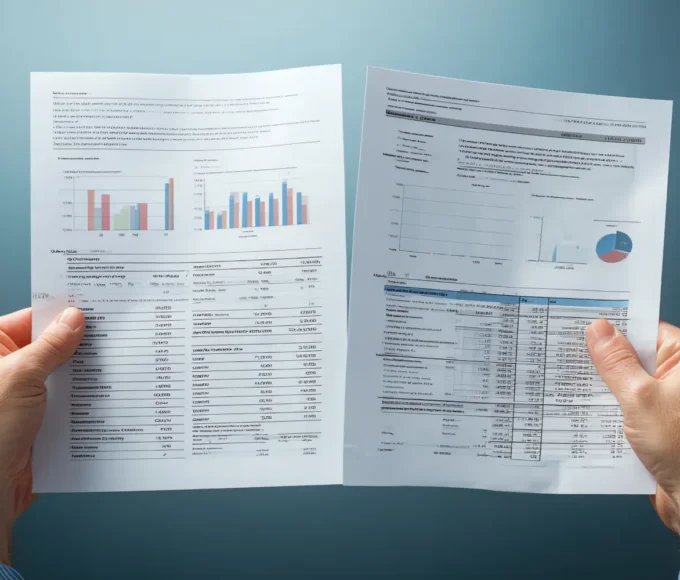Can you run your business with a closed eye? Will you be able to see if you are making money or losing money? Unfortunately, that is exactly what happens when business owners ignore their financial reports. These reports are not just paperwork or end-of-year formalities; they are the report card of the business. Your income statement, balance sheet, and cash flow report can reveal what is working, what is not, and what needs to be changed. You don’t need to be a financial expert to understand these reports or use them to make smarter decisions. In fact, once you get the hang of it, you might be able to understand it and use it to generate profit.
What are the Financial Reports?
Financial Reports are the story of your business in numbers. Every sale you make, every bill you pay, every rupee you invest or borrow, it all ends up in one of these three core documents:
- Income Statement: It shows your profits and losses
- Balance Sheet: It shows what you own and owe
- Cash Flow Statement: It shows where your money actually goes
These help you answer key questions like:
- Can I afford to hire someone?
- Should I raise my prices?
- Is it time to open another branch?
- Why does it feel like I’m always out of cash?
Income Statement
It is also known as the Profit and Loss Statement. This one tells you:
- How much money came in (your revenue)
- How much went out (your expenses)
- And what’s left at the end (your profit or loss)
How does this help you decide
- Evaluate if your revenue is sufficient to cover expenses
- Identify unnecessary or rising costs that affect profitability
- Determine if your pricing strategy needs adjustment
- Measure overall profitability and business performance
- Support data-driven planning and goal setting
Balance Sheet
If the income statement shows your business’s performance over time, the balance sheet is like a snapshot of your business at a specific moment.
It lists:
- Assets: What your business owns (cash, equipment, inventory)
- Liabilities: What your business owes (loans, bills, taxes)
- Equity: What is left for you or shareholders
What does this matter
It helps in
- Assessing the financial health of a company
- Showing how much of the business is financed by debt vs. owner’s equity
- Evaluating borrowing capacity
- Identifying if the assets of the company are sufficient to cover the liabilities or not
- Supporting informed decisions about expansion, investment, or restructuring
Cash Flow Statement
This is important, especially for small business owners. You can be profitable on paper and still be broke in real life. That’s where the cash flow statement saves you.
It breaks down your actual cash movement into:
- Operating activities (money from your core business)
- Investing activities (buying/selling assets)
- Financing activities (loans, repayments, capital injections)
How It Helps
- Reveals if your operations generate enough cash to cover expenses
- Highlights delays in receiving payments from customers
- Helps you check whether cash is being tied up in assets or loan repayments
- Assists in maintaining a healthy cash balance to meet obligations
- Supports better planning of spending, borrowing, and investing decisions
The cash flow statement helps you figure out why you are short on cash, and what you need to change, whether it is following up on invoices or delaying a big purchase.
How Financial Reports Help You Make Smarter Decisions?
Now that you know the meaning and functioning of financial reports, let’s understand how you can use these reports to make better financial decisions.
- You see problems early: If your profit margin is going down month after month, or your inventory is piling up, your reports will show it before it becomes a crisis. That gives you time to fix the issue.
- You plan with confidence: Are you thinking of hiring? Expanding? Upgrading equipment? Financial reports show whether you can afford it—or if you need to wait a few months.
- You avoid cash crunches: Cash flow reports let you anticipate when you might run low on cash, which gives you time to arrange a line of credit, chase payments, or cut back temporarily.
- You can set smarter goals: Want to grow sales by 20% next year? You’ll need to know your current baseline. Financial reports give you the starting point for setting realistic and measurable goals.
- You can attract investors or get loans: Banks and investors don’t care about gut feelings. They want to see your financial statements. Clean, consistent financial reports show that you are running a professional, responsible business.
You don’t need to be a finance expert
Use simple accounting software or even a spreadsheet. Work with a bookkeeper or accountant once a month if you need to. The key is to make reviewing your reports a regular habit.
If you do, you will:
- Make decisions based on facts, not feelings
- Catch problems early, before they snowball
- Build a business that’s financially strong, not just busy
Final Thoughts
Running a business is hard enough without flying blind. Financial reports give you a complete view of your business. They track your past performance, reveal your current situation, and help you plan for the future.
 gbooksOctober 17, 20253 Mins read246 Views
gbooksOctober 17, 20253 Mins read246 Views











Leave a comment